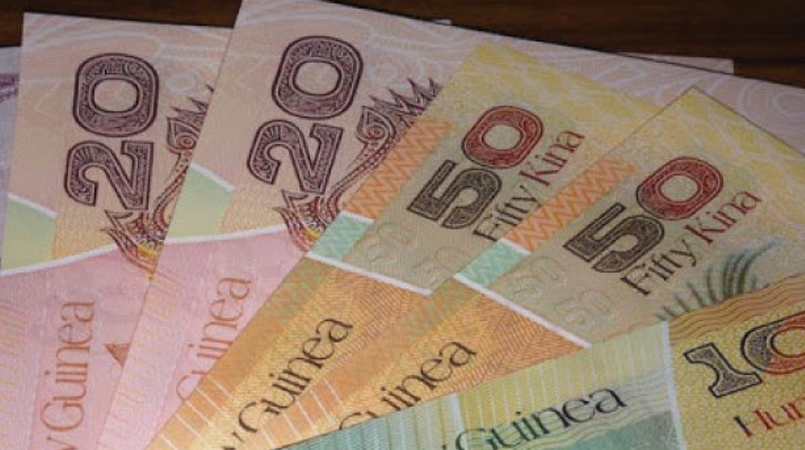
The Prime Minister Peter O’Neill promised a tight budget a short while back.
His Treasurer Patrick Pruaitch delivered one yesterday when he presented this Government’s 5th consecutive budget which is set at K12,965.4 million against a projected revenue envelope of K11,088.8 million.
This compares with an expenditure bill of K13,834 million in the recently passed 2016 Supplementary Budget after a K928 million was cut from the original budget to prevent a budget blow out. The revised revenue forecast in the Supplementary Budget was K11,722 million, slightly higher than the 2017 revenue forecast.
No government will ignore elections and there is something in this budget for the elections but nothing out of the ordinary.
That and the message that rang loud and clear yesterday from the Treasurer that “…we cannot spend money we do not have. We cannot borrow beyond our ability to repay. To survive conditions brought about by global trends, we have to maintain realistic policies that will continue to underpin future growth, while ensuring that current revenues are well spent.”
These words, however true and sincere, have a chilling effect. If on the eve of National General Elections, we are forced into this mode: Just how deeply in trouble are we?
The answer will make itself felt in no time and now is not the time to make conjecture.
Back to the budget, there must always be those that are hit hard.
Those hardest hit next year will be:
- Employer provided housing benefits taxable component will be adjusted upwards. This will create two additional tiers for Up Market Cost Houses and Very High Cost Houses and will fully tax offshore employer provided housing. Treasurer, Pruaitch said this measure will strike a balance between encouraging and supporting employers who provided accommodation to employees and ensuring fairness to all taxpayers.
- Log exporters with there being a reintroduction in the budget of a progressive log export tax on unprocessed old-growth logs to capture the resource rent of varying log species. This means that logs will now be taxed according to their species value.
- Alcohol and Tobacco producers will be hard hit with increases in taxation for both products. The alcohol indexation cap will be increased from 2.5 per cent to a flat rate of 5 per cent biannually while the tobacco excise base rates will have a one off increase.
- Departure tax will be increased from K30 to K114.
- Taxation treatment of corporate income tax, dividends, interest and foreign contractors across all sectors of the economy will be standardised but specifics were not immediately available.
- Bookmakers stamp duty and bookmaker’s turnover tax will be increased and government’s share of revenue from gaming machines will increase.
In terms of expenditure, the Government has opted to keep all the provincial, districts and wards services improvement funds. PSIP is allocated K220 million; DSIP gets K890 million; LLGSIP receive K32.2 million and wards have been allocated K61.8 million.
The funds are singularly the biggest leak in public accountability as there is no capacity as all levels to account for these funds. Even the Auditor General does not have the capacity to follow these funds into the provinces, much less the districts and the wards. At some stage in the future the manner in which these funds are disbursed need looking at.
But as noted, it is election year and no politician worth his salt is going to propose that these funds be got rid of.
In any event the services improvement funds have burgeoned allocation to the provinces to K3,605.7 million or 27.8 per cent of the budget placing it first on the expenditure list.
The Administration sector comes in second with 21.1 per cent of the budget receiving K2,732.3 million and include APEC budget of K250 million, National Elections take up K400 million, Interest taking up K1,316.9 million, Superannuation receiving K272 million, retrenchments get K20 million and office accommodation nets K78 million.
Health Sector has been allocated the third largest share of the budget with K1,221.2 or 9.4 per cent.
Education receives K1,162.5 million of which Tuition Fee Free Education is allocated K602 million.
Law and Order is next with K1,124 million. The Transport Sector will receive K897.15 million and the Economic Sector is allocatd k398 million.
The Treasurer announced that public sector reform is high on the Government’s agenda next year to improve efficiency and cut cost.
In 2017 the government proposes to encourage state owned enterprises to focus of efficiency and increase competitiveness with the markets in which they operate with particular focus on shipping and aviation, electricity and telecommunication.
Various policy reforms as regards SOEs ill include On-Lending and Guarantee policies, Dividend Policy, Community Services Obligation Policy and the Public Private Partnership policy.
In all it is a responsible budget but every other budget must be framed in this manner.
Too many times in the past, budgets have been too loosely drawn up with the effect that a number of supplementary budgets have had to be drawn up and those revenues above projected collections have made their way into trust accounts.
Note: Frank Kolma is the former Editor of The National Newspaper and has covered finance and politics and regional issues with his popular Building Blocks column.
